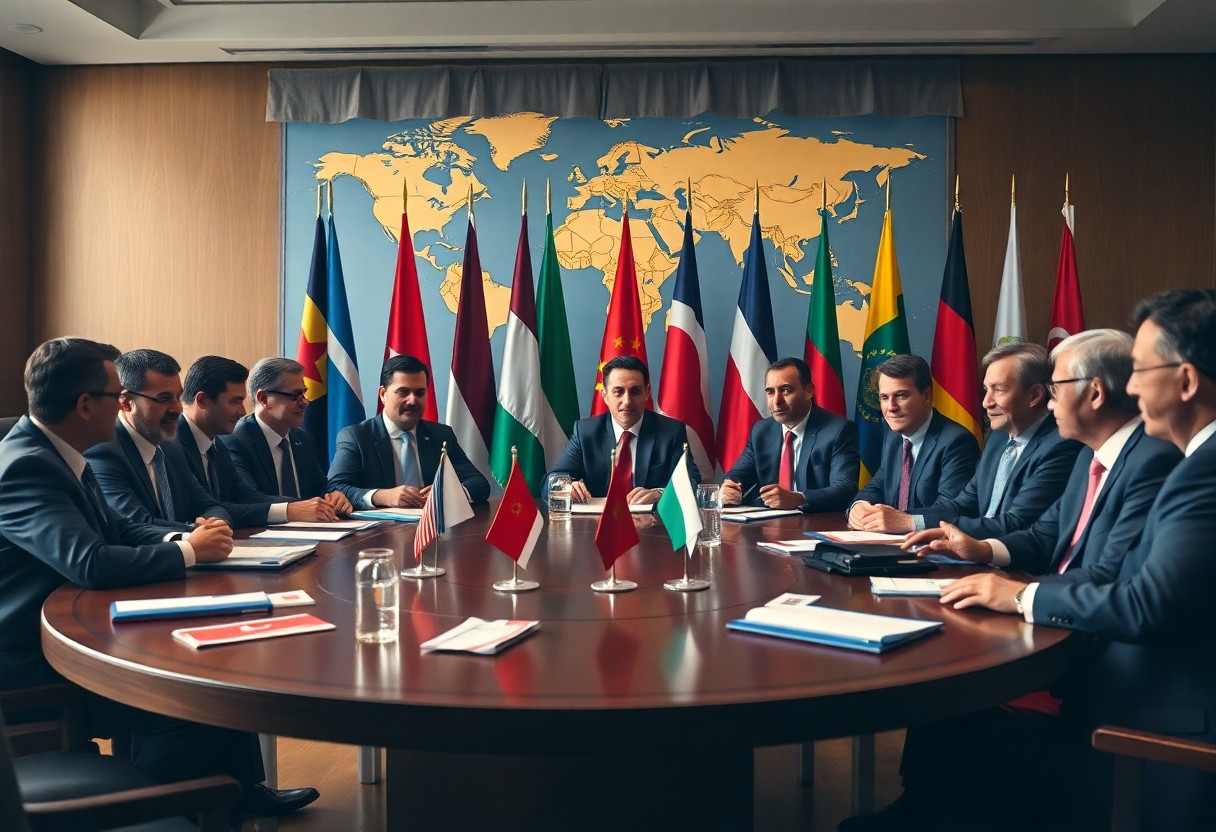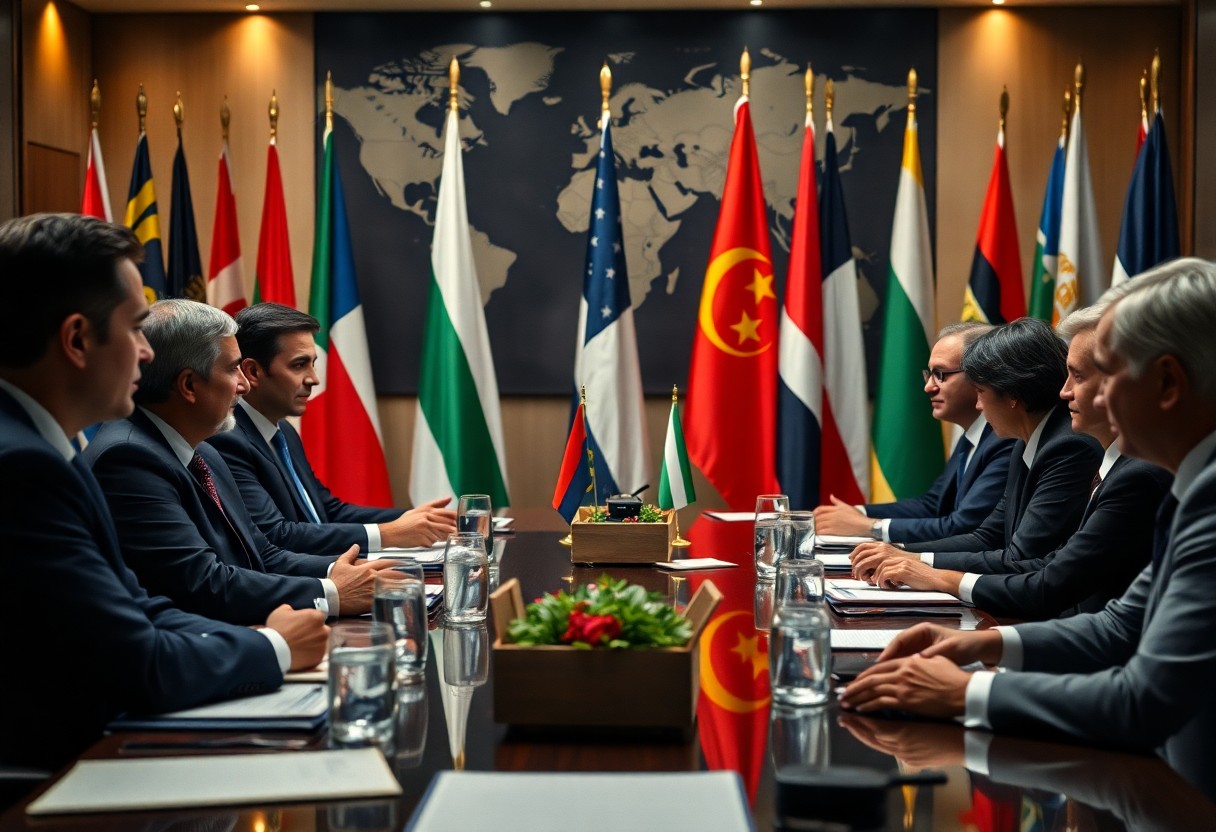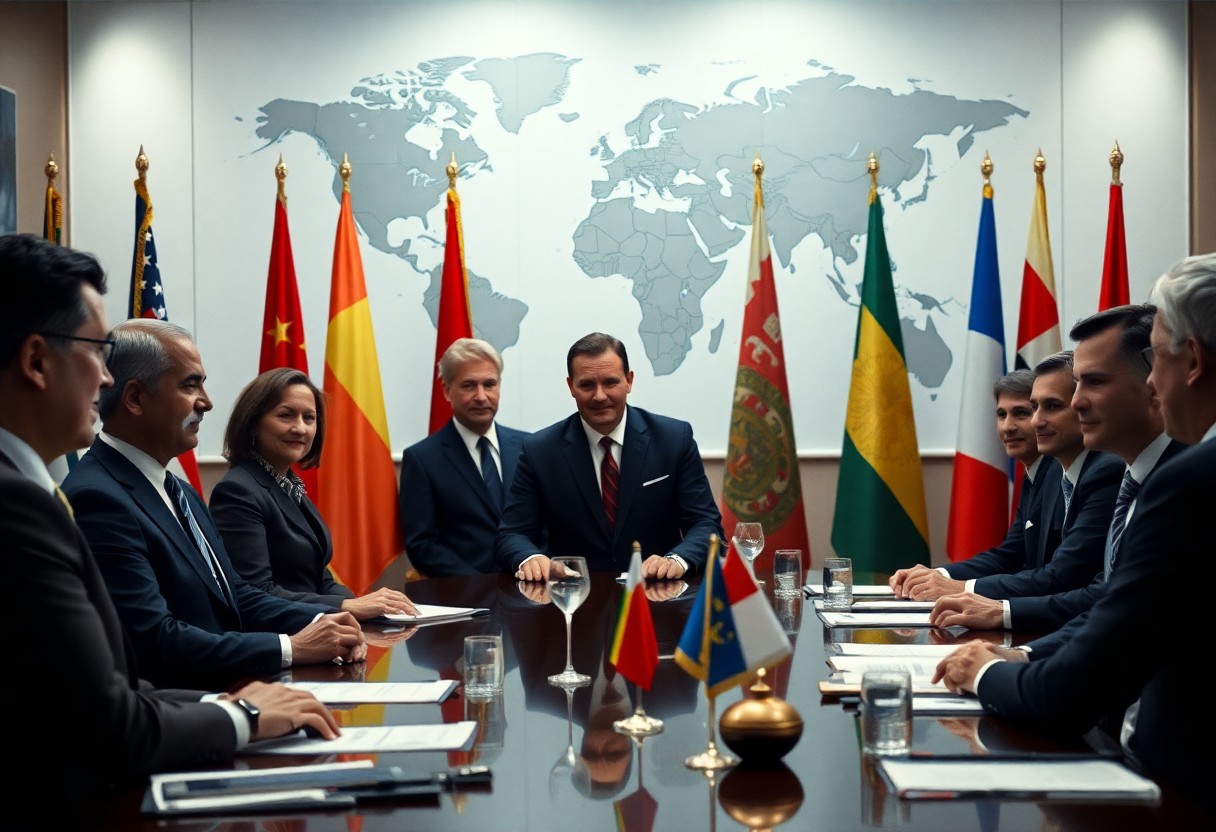There’s a growing demand for professionals equipped with the skills necessary to navigate the complexities of international relations, and pursuing a Master of Diplomacy (MDipl) can be your gateway to this dynamic field. This advanced degree program not only enhances your understanding of diplomatic practices but also sharpens your analytical and negotiation skills, preparing you for various career paths in government, international organizations, and private sectors. By delving into key issues such as global governance, conflict resolution, and policy analysis, you can set yourself apart as a knowledgeable leader in diplomacy.

Key Takeaways:
- MDipl programs typically focus on developing advanced skills in negotiation, conflict resolution, and international relations, equipping students for careers in diplomacy or related fields.
- Many MDipl courses incorporate experiential learning, allowing students to engage in simulations, internships, and practical projects that enhance their understanding of global diplomacy.
- Graduates of MDipl programs often pursue a variety of career paths, including roles in government, non-profit organizations, international organizations, and the private sector, creating a versatile professional opportunity landscape.
Overview of the Master of Diplomacy Program
For those seeking to shape international relations, the Master of Diplomacy (MDipl) program offers a comprehensive understanding of diplomacy’s intricacies. This program equips you with the skills and knowledge needed to navigate complex political landscapes and engage effectively in global dialogues. You will explore various aspects of diplomacy, including negotiation techniques and conflict resolution, to prepare you for impactful careers in this dynamic field.
Program Objectives
Diplomacy aims to provide you with the analytical tools necessary for assessing international developments and understanding the underlying principles of state interactions. Through this program, you will cultivate competencies that enhance your ability to influence policy decisions and foster relationships among nations, making you an effective advocate in international affairs.
Curriculum Structure
Below is an overview of the curriculum structure designed to offer you a balanced mix of theoretical knowledge and practical experience. The program typically includes core courses focusing on international relations theory, diplomatic practices, and global governance, paired with elective courses that allow you to specialize in areas of interest such as sustainable development, security studies, or economic diplomacy.
Hence, you will engage in case studies, simulations, and collaborative projects, fostering hands-on learning that prepares you for real-world challenges. The structured approach emphasizes interdisciplinary studies, enabling you to draw insights from various fields such as economics, law, and cultural studies. This comprehensive curriculum not only enhances your critical thinking and problem-solving skills but also ensures you are well-equipped for diverse roles in diplomacy and international relations.
Admission Requirements
Even if you aspire to excel in diplomacy, understanding the admission requirements for the Master of Diplomacy (MDipl) program is vital. You can find detailed criteria by visiting Master of Diplomacy – ANU – Programs and Courses. Ensuring you meet these prerequisites is the first step towards your academic journey.
Academic Qualifications
About the academic qualifications, you typically need a bachelor’s degree or equivalent in related fields such as international relations or political science. This foundation will help you engage fully with the coursework and enhance your learning experience.
Application Process
Process your application by gathering the necessary documents, including your academic transcripts, CV, and personal statement. Ensure that your application reflects your enthusiasm for diplomacy and your unique background, as these will be important factors in the evaluation.
Requirements for the application process include submitting an online application form along with the specified documentation. Be mindful of deadlines and consider preparing early to present the best version of yourself. Engaging with former students or faculty can provide additional insights to strengthen your application.
Key Skills Developed
Unlike other fields of study, a Master of Diplomacy (MDipl) program equips you with a wide range of imperative skills that enhance both personal and professional effectiveness. You will cultivate analytical thinking, strategic decision-making, and conflict resolution capabilities, which are vital in understanding and navigating the complexities of international relations. These skills not only prepare you for a career in diplomacy but also empower you to engage meaningfully in a globalized world.
Negotiation Techniques
With a focus on negotiation techniques, you will learn how to build persuasive arguments, analyze stakeholder positions, and facilitate positive outcomes in contentious discussions. This skill set is instrumental in forging alliances, resolving disputes, and driving collaboration, ensuring you are well-prepared to tackle real-world diplomatic challenges.
Cross-Cultural Communication
Before engaging in diplomacy, you must develop a deep understanding of cross-cultural communication to effectively interact with diverse populations. This skill enables you to navigate language barriers, cultural nuances, and differing worldviews, fostering better relationships and mutual respect.
It is imperative to recognize that cross-cultural communication extends beyond mere language proficiency. You will enhance your ability to empathize with others, adapting your communication style to resonate with various cultural contexts. This skill not only aids in diplomatic encounters but also enriches your global perspective, making you a more effective advocate for collaboration and understanding in international affairs.
Career Opportunities for Graduates
Keep in mind that a Master of Diplomacy (MDipl) opens a wide array of career paths in various fields. Whether you aspire to work in international relations, conflict resolution, or global policy, your qualifications will enable you to engage meaningfully with complex global challenges. By leveraging your skills and knowledge, you can position yourself for success in both public and private sectors.
International Organizations
Opportunities abound within international organizations such as the United Nations, World Bank, and NATO. These entities value the specialized skills and insights that MDipl graduates possess, making you an ideal candidate for roles in diplomacy, human rights advocacy, and sustainable development programs. Your education will allow you to tackle pressing global issues while fostering international cooperation.
Government Agencies
The MDipl equips you for rewarding careers in various government agencies, where your expertise in international relations, policy analysis, and conflict resolution will be highly sought after. Positions may include foreign service officers, diplomats, or policy advisors, giving you the chance to shape your country’s foreign policy and represent national interests around the world.
But navigating a career in government can be competitive and requires dedication. With your MDipl, you will develop key competencies such as negotiation skills and cultural awareness, which are crucial for effective public service. Engaging with complex issues, you can contribute meaningfully to national and international dialogues, influencing decisions that impact millions globally.

Global Perspectives in Diplomacy
All nations face unique challenges and opportunities in diplomacy, shaped by their cultural, economic, and geopolitical contexts. Understanding these global perspectives is key to becoming an effective diplomatic practitioner. By analyzing diverse approaches to international relations, you can refine your strategies and enhance your ability to foster collaborations and resolve conflicts across borders.
Case Studies
With a focus on real-world applications, case studies provide valuable insights into contemporary diplomatic practices. Here are some notable examples:
- 1. The Iran Nuclear Deal (2015): Aimed at curbing Iran’s nuclear ambitions, negotiations brought together P5+1 nations and resulted in a 95% reduction in uranium enrichment.
- 2. The Paris Agreement (2016): An international effort to combat climate change, where 196 nations committed to limit global warming to below 2 degrees Celsius.
- 3. The U.S.-Mexico-Canada Agreement (USMCA, 2020): Revamped trade relations affecting 1.9 trillion USD trade, enhancing labor rights and environmental protections.
- 4. The Camp David Accords (1978): A landmark peace agreement between Egypt and Israel, leading to significant geopolitical shifts and a 40% reduction in conflict-related fatalities in the region.
Emerging Trends
Perspectives on global diplomacy are evolving as new challenges arise, such as cyber threats and climate change. Increased multipolarity and the rise of non-state actors are reshaping traditional diplomatic approaches, making inclusivity and collaboration imperative. You must be adept at navigating this complex landscape, fostering relationships not only between nations but also with NGOs, corporations, and grassroots movements.
Hence, staying informed about these emerging trends allows you to anticipate shifts in global power dynamics and to leverage innovative technologies, ensuring that your diplomatic efforts are both effective and relevant in an ever-changing world.
Networking and Professional Development
Many opportunities for networking and professional growth lie within the Master of Diplomacy (MDipl) program. Engaging with fellow students, faculty, and industry leaders enables you to build meaningful relationships that can significantly enhance your career. Participating in workshops, conferences, and alumni events allows you to gain insights and expand your professional network, making you more competitive in the dynamic field of diplomacy.
Alumni Contributions
Networking with alumni provides you with invaluable access to their experiences and insights. They often share their career paths and offer mentorship, guiding you through the professional landscape. Alumni relationships can open doors to job placements and collaborative opportunities, proving advantageous to your career development.
Partnerships with Institutions
Between the MDipl program and various global institutions, partnerships play a vital role in enhancing your learning experience and career prospects. Collaborative initiatives, internships, and research opportunities with respected organizations allow you to gain practical knowledge and skills that are directly applicable in the diplomatic field.
Contributions from partnerships with institutions enrich your education by providing real-world experiences and exposure to professional environments. These alliances often result in workshops, guest lectures, and hands-on projects, equipping you with imperative tools and insights necessary for success in your diplomatic career. This synergy between academia and industry ensures you are well-prepared to navigate complex global challenges.
Final Words
With these considerations, pursuing a Master of Diplomacy (MDipl) equips you with the necessary skills and knowledge needed to navigate the complexities of international relations. This advanced degree enhances your understanding of global affairs and prepares you for a dynamic career in diplomatic service, international organizations, or non-governmental entities. By mastering negotiation, conflict resolution, and cross-cultural communication, you position yourself as a leader capable of influencing policy and fostering meaningful partnerships. Embrace this opportunity to advance your career and contribute positively to the global community.

